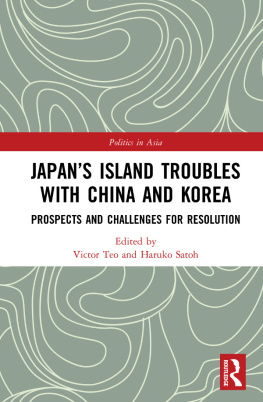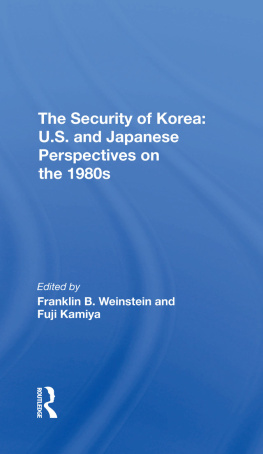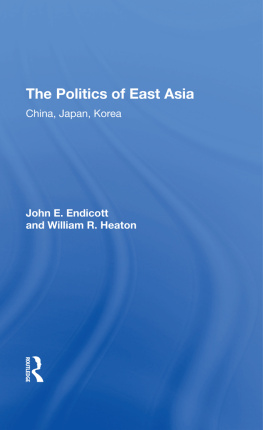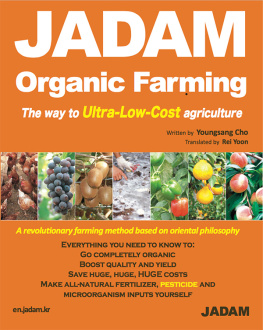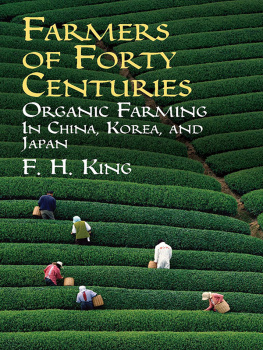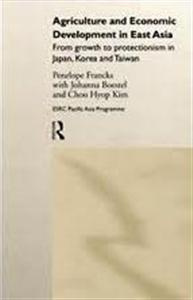Title: Farmers of Forty Centuries or, Permanent Agriculture in China, Korea and Japan
Author: F. H. King
Release Date: March, 2004 [EBook #5350] [Yes, we are more than one year ahead of schedule] [This file was first posted on July 6, 2002]
Edition: 10
Language: English
This eBook was created by Steve Solomon (www.soilandhealth.org) and Charles Aldarondo (pg@aldarondo.net).
FARMERS OF FORTY CENTURIES
OR
PERMANENT AGRICULTURE IN CHINA, KOREA AND JAPAN
By
F. H. KING, D. Sc.
1911
PREFACE
By DR. L. H. BAILEY.
We have not yet gathered up the experience of mankind in the tilling of the earth; yet the tilling of the earth is the bottom condition of civilization. If we are to assemble all the forces and agencies that make for the final conquest of the planet, we must assuredly know how it is that all the peoples in all the places have met the problem of producing their sustenance out of the soil.
We have had few great agricultural travelers and few books that describe the real and significant rural conditions. Of natural history travel we have had very much; and of accounts of sights and events perhaps we have had too many. There are, to be sure, famous books of study and travel in rural regions, and some of them, as Arthur Young's "Travels in France," have touched social and political history; but for the most part, authorship of agricultural travel is yet undeveloped. The spirit of scientific inquiry must now be taken into this field, and all earth-conquest must be compared and the results be given to the people that work.
This was the point of view in which I read Professor King's manuscript. It is the writing of a well-trained observer who went forth not to find diversion or to depict scenery and common wonders, but to study the actual conditions of life of agricultural peoples. We in North America are wont to think that we may instruct all the world in agriculture, because our agricultural wealth is great and our exports to less favored peoples have been heavy; but this wealth is great because our soil is fertile and new, and in large acreage for every person. We have really only begun to farm well. The first condition of farming is to maintain fertility. This condition the oriental peoples have met, and they have solved it in their way. We may never adopt particular methods, but we can profit vastly by their experience. With the increase of personal wants in recent time. the newer countries may never reach such density of population as have Japan and China; but we must nevertheless learn the first lesson in the conservation of natural resources, which are the resources of the land. This is the message that Professor King brought home from the East.
This book on agriculture should have good effect in establishing understanding between the West and the East. If there could be such an interchange of courtesies and inquiries on these themes as is suggested by Professor King, as well as the interchange of athletics and diplomacy and commerce, the common productive people on both sides should gain much that they could use; and the results in amity should be incalculable.
It is a misfortune that Professor King could not have lived to write the concluding "Message of China and Japan to the World." It would have been a careful and forceful summary of his study of eastern conditions. At the moment when the work was going to the printer, he was called suddenly to the endless journey and his travel here was left incomplete. But he bequeathed us a new piece of literature, to add to his standard writings on soils and on the applications of physics and devices to agriculture. Whatever he touched he illuminated.
CONTENTS
PREFACE
INTRODUCTION
FIRST GLIMPSES OF JAPAN
GRAVE LANDS OF CHINA
TO HONGKONG AND CANTON
UP THE SI-KIANG, WEST RIVER
EXTENT OF CANALIZATION AND SURFACE FITTING OF FIELDS
SOME CUSTOMS OF THE COMMON PEOPLE
THE FUEL PROBLEM, BUILDING AND TEXTILE MATERIALS
TRAMPS AFIELD
THE UTILIZATION OF WASTE
IN THE SHANTUNG PROVINCE
ORIENTALS CROWD BOTH TIME AND SPACE
RICE CULTURE IN THE ORIENT
SILK CULTURE
THE TEA INDUSTRY
ABOUT TIENTSIN
MANCHURIA AND KOREA
RETURN TO JAPAN
INTRODUCTION
A word of introduction is needed to place the reader at the best view point from which to consider what is said in the following pages regarding the agricultural practices and customs of China, Korea and Japan. It should be borne in mind that the great factors which today characterize, dominate and determine the agricultural and other industrial operations of western nations were physical impossibilities to them one hundred years ago, and until then had been so to all people.
It should be observed, too, that the United States as yet is a nation of but few people widely scattered over a broad virgin land with more than twenty acres to the support of every man, woman and child, while the people whose practices are to be considered are toiling in fields tilled more than three thousand years and who have scarcely more than two acres per capita,* more than one-half of which is uncultivable mountain land.
*[Footnote: This figure was wrongly stated in the first edition as one acre, owing to a mistake in confusing the area of cultivated land with total area.]
Again, the great movement of cargoes of feeding stuffs and mineral fertilizers to western Europe and to the eastern United States began less than a century ago and has never been possible as a means of maintaining soil fertility in China, Korea or Japan, nor can it be continued indefinitely in either Europe or America. These importations are for the time making tolerable the waste of plant food materials through our modern systems of sewage disposal and other faulty practices; but the Mongolian races have held all such wastes, both urban and rural, and many others which we ignore, sacred to agriculture, applying them to their fields.
We are to consider some of the practices of a virile race of some five hundred millions of people who have an unimpaired inheritance moving with the momentum acquired through four thousand years; a people morally and intellectually strong, mechanically capable, who are awakening to a utilization of all the possibilities which science and invention during recent years have brought to western nations; and a people who have long dearly loved peace but who can and will fight in self defense if compelled to do so.
We had long desired to stand face to face with Chinese and Japanese farmers; to walk through their fields and to learn by seeing some of their methods, appliances and practices which centuries of stress and experience have led these oldest farmers in the world to adopt. We desired to learn how it is possible, after twenty and perhaps thirty or even forty centuries, for their soils to be made to produce sufficiently for the maintenance of such dense populations as are living now in these three countries. We have now had this opportunity and almost every day we were instructed, surprised and amazed at the conditions and practices which confronted us whichever way we turned; instructed in the ways and extent to which these nations for centuries have been and are conserving and utilizing their natural resources, surprised at the magnitude of the returns they are getting from their fields, and amazed at the amount of efficient human labor cheerfully given for a daily wage of five cents and their food, or for fifteen cents, United States currency, without food.



